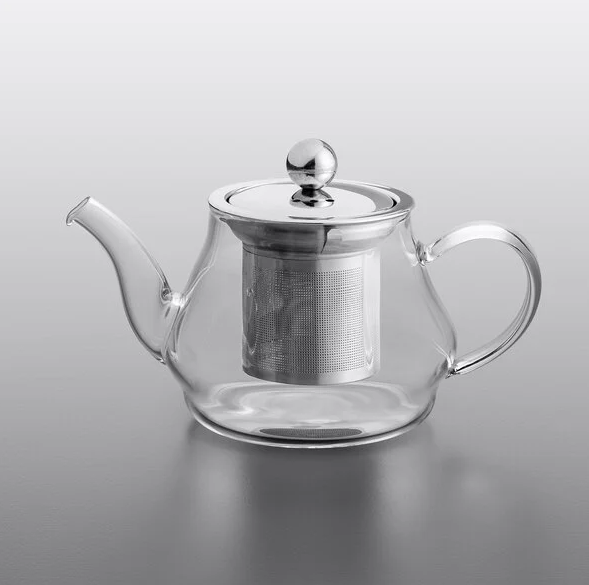15 Best Teas for a Sore Throat or Bad Cough
1. Ginger Tea
Lemon, ginger root and honey might be one of the most popular home remedies for treating common cold, including soothing sore throat and cough. Ginger may help with the lowering body temperature[1] thus reducing fever. Fresh ginger root, lemon juice and honey mixed with water make a tasty common cold fighting drink too. Avoid large doses of fresh ginger as it may cause some side effects such as diarrhea or irritation.2. Chamomile Tea
Chamomile tea is world famous for its soothing and calming properties and helping with respiratory problems. Inhaling hot chamomile infusion is still one of the most popular way of treating respiratory problems related to common cold. Drinking tea may help too and tastes delicious, but science says you don't need to drink it to soothe the throat. To reduce the “inflammation of the mucous membranes of the mouth and throat[2]”, the infusion should be used for gargling instead.3. Licorice Root Tea
One of the sweetest teas in the world, licorice root tea, may help to soothe a sore throat, “cough, asthma, and other breathing problems[3]”. 50 times sweeter than sugar[4], licorice is one of the tastiest home remedies too. Research showed it might be useful in treating postoperative sore throat, a throat condition and cough caused by intubation. Licorice has an anti-depressant effect too, so consult your doctor if you are taking medicine that may interact with licorice root.4. Marshmallow Root Tea
Marshmallow root has a long tradition in home treatments of coughs. One German study showed that this traditional medicinal plant has soothing properties and may reduce the irritation caused by dry cough,[5] asthma, bronchitis, common cold and sore throat. For soothing properties, it’s safe to drink several cups per day. It contains a substance called mucilage, that may have soothing effects on respiratory system. Mucilage may interact with other oral medicine, so be cautious.5. Iceland Moss Tea
One of the best herbal teas for sore throat is Iceland moss. Iceland moss contains mucilage and a cup of warm Iceland moss tea might even provide an instant relief. A study on 61 patients showed that Iceland moss is a “advisable therapeutic opportunity without interactions and side effects[6]”. Brew one teaspoon of this tea for 10-15 minutes in boiling water and strain. Iceland moss has a naturally bitter flavor, so add honey if needed.6. Rooibos Tea
Rooibos is a herbal tea made from south African plant called red bush. Although not as popular for treating the symptoms of common cold, this tea may be very helpful. Packed with antioxidants and naturally caffeine free, rooibos may help with soothing the throat and cough. Unlike most other herbal teas, it may provide relief for children too. Brew one teaspoon of rooibos tea in a cup of boiling water for 5-10 minutes.7. Honeybush tea
Honeybush is another caffeine free tea, with a flavor similar to rooibos tea. It has been traditionally used as a “medicinal concoction for soothing coughs, alleviating bronchial complaints.[7]” Honeybush is naturally sweet, with leaves resembling yerba mate leaves. Brew one teaspoon of honeybush tea in a cup of boiling water for 5-10 minutes.8. Sage Tea
Traditionally, sage has been used for a whole range of respiratory problems, including bronchitis, cough, asthma, angina, mouth and throat inflammations[8]. Not only can you use this bitter and sweet herb for making tea, but for cooking as well. To maximize the benefits, try using it with rosemary.9. Thyme Tea
Thyme, a herb most commonly used for cooking rather than drinking, may be a strong companion in dealing with cough symptoms[9]. You may drink the dry leaves alone prepared in a cup of boiling water for 10 minutes, or mixed with other throat and cough soothing herbs like ivy and primrose[10].10. Peppermint tea
Antiviral, antibacterial and anti inflammatory effects of refreshing peppermint may help in dealing with a common cold. Research showed that L-menthol, a compound in peppermint could be beneficial in treating “chronic inflammatory disorders such as bronchial asthma, colitis and allergic rhinitis”.[11]11. Plantain tea
Plantain is a herb native to Europe and Asia, often growing as a weed around the world[12]. It’s often used for wound healing, lowering fever, and treating bronchitis because of its soothing properties[13]. Studies showed that hot plantain tea may help with viral infections such as malaria and may help with bacterial and fungal infections too[14].12. Echinacea tea
Herbal teas may not only help treat the symptoms of cold and flu, they may be helpful in preventing them too. Studies show that Echinacea may reduce the risk of catching a cold[15]. More research is needed to determine how and if Echinacea can prevent and help common cold.13. Fennel tea
Fennel is used around the world and an important part of herbal medicines. It may help with reducing fever and treating a cough[16]. It has anti-inflammatory properties and may help with decongesting the sinuses[17].14. Anise Seed tea
Anise seed is a sweet seed often used to replace licorice in many food products. It’s added to many tea blends both because of the flavour and potential benefits. It’s may help with treating cough, asthma and respiratory infections and may help strengthen the immune system[18].15. Ginseng
Being an adaptogen, ginseng is often used for improving the overall quality of life in Asian countries. Ginseng may help with boosting immune system and reduce the chance of getting catching a cold[19]. Some studies showed that it may help with acute respiratory infections that prevent normal breathing[20].Disclaimer: The purpose of this article is not to diagnose or treat any diseases, or to replace an opinion of a professional doctor. Never self-treat any diseases, or drink large quantities of tea, real or herbal, if you are suffering from serious diseases, are pregnant or breastfeeding. Every person is different and it’s impossible to make a general statement about the benefits or side-effects.
References:
[1] https://www.ncbi.nlm.nih.gov/books/NBK92775/ [2] https://www.ncbi.nlm.nih.gov/pmc/articles/PMC2995283/ [3] https://www.ncbi.nlm.nih.gov/pmc/articles/PMC2995283/ [4] http://pennstatehershey.adam.com/content.aspx?productid=107&pid=33&gid=000262 [5] https://www.ncbi.nlm.nih.gov/pubmed/30064132 [6] https://www.ncbi.nlm.nih.gov/pubmed/9213408 [7] https://www.researchgate.net/publication/323500091_Metabolic_profiling_of_four_South_African_herbal_teas_using_high_resolution_liquid_chromatography-_mass_spectrometry_and_nuclear_magnetic_resonance [8] https://www.ncbi.nlm.nih.gov/pmc/articles/PMC4003706/ [9] https://www.ncbi.nlm.nih.gov/pubmed/26840418 [10] https://www.ncbi.nlm.nih.gov/pubmed/26840418 [11] https://www.ncbi.nlm.nih.gov/pubmed/9889172 [12] https://www.peacehealth.org/medical-topics/id/hn-2148003 [13] https://www.peacehealth.org/medical-topics/id/hn-2148003 [14] https://www.ncbi.nlm.nih.gov/pmc/articles/PMC5878035/ [15] https://www.nccih.nih.gov/health/echinacea [16] https://www.ncbi.nlm.nih.gov/pmc/articles/PMC4137549/ [17] https://timesofindia.indiatimes.com/life-style/food-news/winter-remedies-heres-how-fennel-tea-works-wonders-for-cold-and-cough/articleshow/67642787.cms [18] https://www.researchgate.net/publication/318504997_MEDICINAL_BENEFITS_OF_ANISE_SEEDS_PIMPINELLA_ANISUM_AND_THYMUS_VULGARIS_IN_A_SAMPLE_OF_HEALTHY_VOLUNTEERS [19] https://www.ncbi.nlm.nih.gov/pmc/articles/PMC3024156/ [20] https://www.ncbi.nlm.nih.gov/pmc/articles/PMC3524425/









Leave a comment